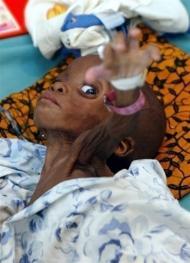Warning Over Health Inequalities By WHO
 On Tuesday, the WHO presents its Annual Health Report, and said our healthcare systems were not enough to meet the challenges of the modern world. The WHO examined the primary health systems around the world and found huge inequalities and inefficiencies persist between and within countries.
On Tuesday, the WHO presents its Annual Health Report, and said our healthcare systems were not enough to meet the challenges of the modern world. The WHO examined the primary health systems around the world and found huge inequalities and inefficiencies persist between and within countries.
According to Margaret Chan, director-general of WHO, focusing on primary healthcare was the best way to affect significant change. “A world that is greatly out of balance in matters of health is neither stable nor secure,” she said.
The WHO said, annual expenditure on health varies from as little as 20 dollars per person to well over 6,000 dollars, and the life expectancy between the richest and poorest countries can vary by more than 40 years.
For example in the Kenyan capital Nairobi, the under-five mortality rate is below 15 per 1,000 in the high income area, while in a slum area in the same city, the rate is 254 per 1,000. the WHO said, For 5.6 billion people in low- and middle-income countries, more than half of all health care expenditure is through out-of-pocket payments.
The WHO report warns that healthcare often focuses on high technology and specialist care, when giving a priority to general practitioners, was likely to be more productive, particularly if they concentrate on preventative medicine.
Margaret Chan told in a press conference in Almaty, “Some of the greatest waste and inefficiency occurs when health is treated as a commercial commodity, to be bought and sold, assuming that market forces will somehow self-adjust to iron out any problems.” “This seldom happens. What you see instead is unnecessary tests and procedures, more and longer hospital stays, higher costs, and the exclusion of people who cannot pay,” she added.
"These trends fly in the face of a comprehensive and balanced response to health needs," the report warned.